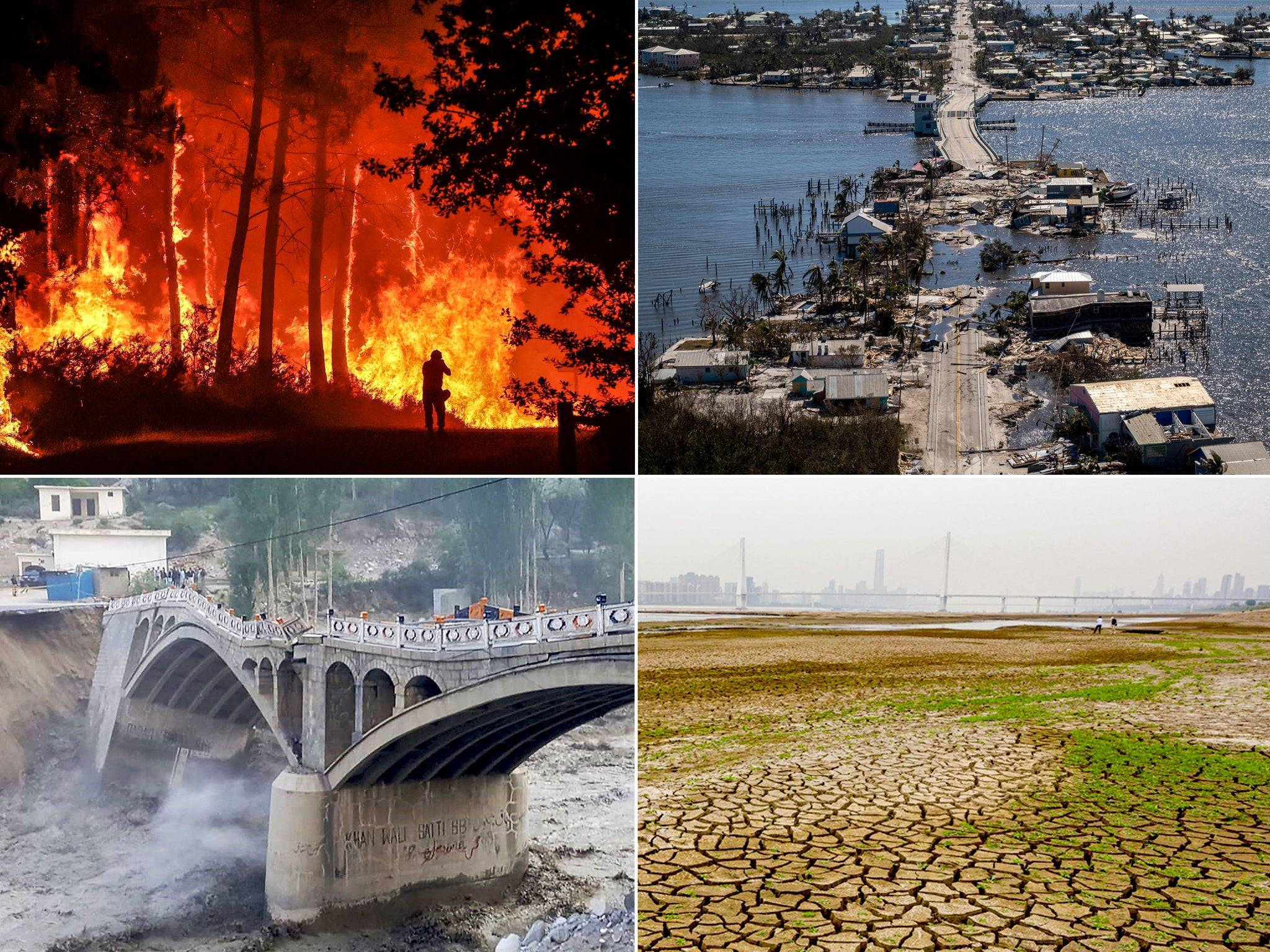Weather and Natural Disasters: Current Global Challenges
The world is witnessing an alarming rise in extreme weather events and natural disasters, a trend driven largely by climate change. These events are reshaping the environment, economies, and communities across the globe. In 2024, the impacts of these phenomena are becoming increasingly severe, from heatwaves and droughts to hurricanes and wildfires. Addressing these challenges requires urgent and coordinated action, as they affect both developed and developing nations alike.
One of the most prominent issues today is the increased frequency of heatwaves. As global temperatures continue to rise, regions like Europe, North America, and parts of Asia have experienced unprecedented heat events. In 2023, for example, southern Europe faced one of its hottest summers, with temperatures soaring past 45°C (113°F). These extreme heat conditions led to droughts, forest fires, and a rise in heat-related illnesses and fatalities. The prolonged high temperatures also affect agriculture, causing crop failures and food insecurity, particularly in vulnerable regions such as Africa and South Asia.
Flooding, another pressing concern, is becoming more frequent and destructive. The monsoon season in South Asia continues to unleash devastating floods, displacing millions of people annually. In July 2023, torrential rains in northern India triggered massive floods, killing hundreds and leaving thousands stranded. In the U.S., hurricanes remain a major issue, with storms like Hurricane Idalia in 2023 causing widespread destruction across Florida, Georgia, and the Carolinas. Coastal cities are particularly vulnerable, with rising sea levels amplifying the intensity of storm surges and flooding.
Wildfires have also become a more frequent and deadly phenomenon, exacerbated by prolonged droughts and rising temperatures. From Australia to Canada, regions that were once less prone to wildfires are now experiencing catastrophic fire seasons. In 2023, Canada experienced one of its worst wildfire seasons on record, with over 17 million hectares of land burned, impacting air quality across North America. The fires led to evacuations, destruction of homes, and loss of biodiversity, underscoring the urgent need for better forest management and disaster preparedness.
Additionally, earthquakes and volcanic eruptions continue to pose significant threats to human life and infrastructure. In 2023, a powerful 6.8 magnitude earthquake struck Morocco, causing widespread damage and resulting in thousands of deaths and injuries. Similarly, volcanic eruptions, such as the one in the Philippines' Mayon Volcano, have displaced thousands of residents and disrupted local economies. While these geophysical disasters are not directly linked to climate change, their impacts are often worsened by other environmental factors, such as deforestation and poor urban planning.
One of the key drivers of the increasing severity of these natural disasters is climate change. The warming of the planet has led to more volatile weather patterns, intensifying storms, floods, and heatwaves. Moreover, melting polar ice caps and glaciers contribute to rising sea levels, which in turn increase the risk of coastal flooding. The intersection of climate change with human activities, such as deforestation, overpopulation in vulnerable areas, and unsustainable agricultural practices, further exacerbates the risk and impact of natural disasters.
Mitigating the impact of these disasters requires global cooperation and long-term planning. Governments and international organizations must prioritize climate resilience, disaster preparedness, and early warning systems. Investment in infrastructure that can withstand extreme weather events is crucial, as is the development of sustainable energy sources to reduce greenhouse gas emissions. Equally important is the need to protect and restore natural ecosystems, such as forests and wetlands, which can act as natural barriers against floods and storms.
In conclusion, the world faces a growing crisis as extreme weather events and natural disasters become more frequent and severe. The consequences are far-reaching, affecting millions of people, economies, and ecosystems. Addressing these issues demands immediate global action to build resilience, reduce emissions, and protect vulnerable communities from the ever-increasing threats posed by climate change and natural disasters.




No comments yet
Be the first to share your thoughts!